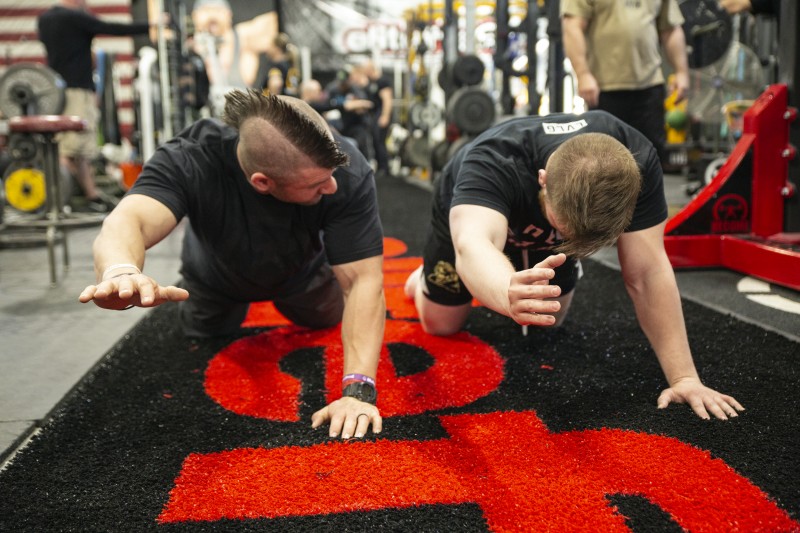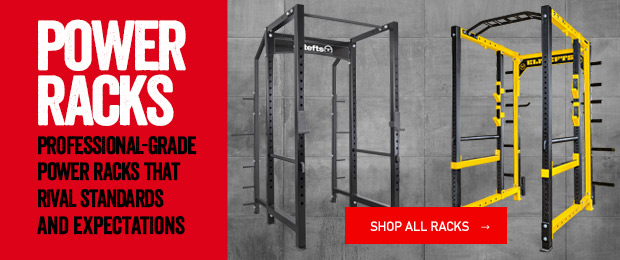
What are you preparing them for?
This is a question we all need to ask ourselves time and time again. I know it’s something I need to do on a more consistent basis, just to help keep my eyes on the right prize. This job can be very rewarding, and yet, also very easy to become sidetracked at the same time. It is rewarding because, with all the many variables that we work on, we can see the little successes within our athletes from day to day and workout to workout.
RELATED: Is Your Foundation Made of Rock or Sand?
Success can be measured in so many ways. It could be a new personal best lift, a faster drill, or for time. It could even be the light coming on for a player who has been struggling with their technique, or finally putting on that 10 pounds of body weight they have been struggling to gain. There are a lot of avenues for failures, but in the big picture, those don’t really count. If they didn’t fail, if they did not know what they were doing, or if they knew it all, then we would not have jobs!
All of these little successes should and will add up to bigger and better things, but we all have to make sure it is leading us to our ultimate goals — injury prevention and increased performance. No matter what we do as strength coaches, these two things are the most important, and we cannot lose sight of that.
There are so many avenues we can pursue, all with good intentions, which can take us away from those goals. It is the nature of the beast, with all of the information available at our fingertips and all the staff members and coaches, who come from different areas and backgrounds, who have a say in your program.
It is understandable that we want to be known for something, to be great at that one thing that will put our name out there for the next job, or to get ourselves Insta-famous. It is a tangled web we weave because too much of one thing and not enough of another can take away from something else that needs to be fixed. It is a constant struggle of assessing and correcting needs, and this is where art — not science — comes in. Here are some examples of what I mean.

Let’s say you are really good at developing strength, and your players are strong as hell. They are crushing personal bests left and right. Not a bad thing by any stretch — hell, you are a strength coach, correct? Trust me, I wish that was all we had to worry about because this job would be even greater than it already is. Shit, it would be perfect! Like I said, it is awesome but is that our goal?
I know it has been said a thousand times, how do you quantify what a good strength coach is? If it is numbers, then you are all set. Injury rates? What if you put all your time in rehab, prehab, and flexibility? Your injury rates will probably go down, but your players will be pushed around all over the field and are underdeveloped. Same with speed work, mobility work, agilities, etc.
This is where we have to refocus and ask ourselves, “What are we preparing them for?” We must give all areas of development their due. I know it sounds easy, but this is where most of us make our mistakes. Every team and every person has weaknesses that need to garner more of our attention, and if we are not careful, not only will we do too much of something they need, we can step on the toes of others, start doing their jobs, and then we really have no time to develop what OUR job calls for us to do.
RELATED: Live and Coach Your Why
If you have a nutritionist on staff, let them handle the nutrition. If you have a trainer, get on the same page, and take the later stage of rehab, but let them do their job. Same for equipment and positions coaches as well.
As strength coaches, we all think that we know better than everyone else (it’s in our competitive nature), but the more we do other people’s jobs, the more it takes away from ours. You know how pissed off you get when a position coach comes into the weight room and tells one of their athletes how to do something or mentions what they did at this place and that place – so don’t do it to them.
Luckily, I learned this lesson a long time ago. I remember getting on a player for doing something wrong (so I thought), but he was actually doing it right. The coach looked at me and told me, in a not so nice way, that he was doing it right and I had better stick to the weight room. He was 100 percent correct, and it was a valuable lesson for me to learn very early on in my career. It snapped me back into reality, and I have tried to live in that reality for the past 21 years.
I guess what I am saying is just stay in your lane. Cultivate your relationships with the rest of the support staff, and let them do their thing. You can always work together to get on the same page because with everyone pulling in the same direction great things will happen!
Another tip to make this easier is to hire people that are good in areas that you are not. I know it may be a blow to your ego, but for the balance of things, it will make the outcome (athletes) better, which is our end goal, anyway. This also goes for staff members who are in charge of other teams as well. Football takes so much time and mental energy (headaches) that sometimes I would put it before other sports, but my Olympic coordinator was always in my ear, making sure everyone got their fair due – and I am forever grateful. We made a great team. You will find you are the strength guy, and one of your staff is pushing, another mobility, another agilities… you get the picture. All angles of the athletes’ development will be covered, and the end goals are in sight every day.
If you do not have staff and are doing most of it yourself, then hopefully, this article will help you focus on the areas that really need work. I know I need this reminder about every four weeks. All the best.










